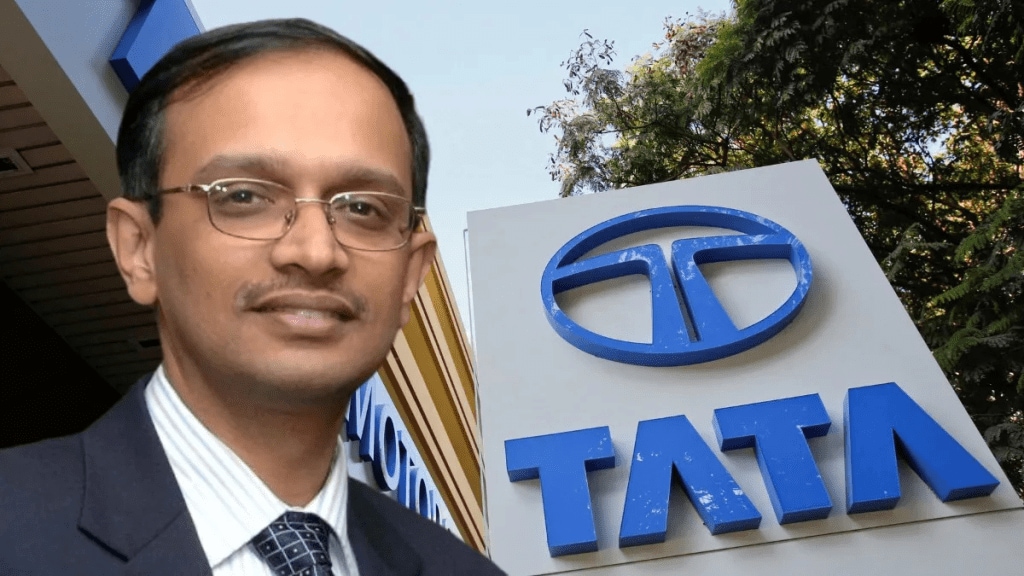The ability to multitask comes in handy in the job of a chef. Right from planning and designing menus to procuring raw material and managing inventory, all the elements must come together perfectly for that harmonious balance of flavour, texture and taste. Tata Motors subsidiary Jaguar Land Rover‘s newly anointed CEO PB Balaji – a sous chef to his wife in the family kitchen — will require all of those skills as the company faces a global sales decline in the first quarter of fiscal 2026 amid legacy model wind-down and the US tariff shock that raised prices of its vehicles in one of its most significant North American markets.
Then there is also the blow-back from JLR’s recent much-vaunted rebranding that has been trashed by critics as ‘seriously woke’. But the 54-year old knows a thing or two about juggling challenges.
In four years, Tata MotorsTata Motors has transitioned from net debt to net cash, thanks to an impressive performance by subsidiary Jaguar Land Rover (JLR), which became debt-free last year. The final quarter of March brought with it the 10th consecutive quarterly profit and also the highest annual Ebitda (earnings before interest depreciation and amortisation) margin, and the highest-ever profit before tax in a year.
That performance is a far cry from the abysmal numbers it posted just six year earlier when JLR reported a loss of £3.6 billion, the biggest in the history of the two British brands.
A lot of that stellar turnaround in the company’s financials can be attributed to Balaji, the group chief financial officer at Tata Motors, who will spearhead JLR, a key driver of profits (80%) at Tata Motors, from November. With that, Balaji will be the first Indian CEO of the two British luxury brands, which were bought by Tata Motors in 2008.
Balaji’s road to the corner office
Having started his career with Unilever in 1995 and worked in different corporate finance roles across, Balaji is well oriented in the intricacies of global finance. Since 2014, he was heading the finance function as the CFO of Hindustan Unilever. Prior to that, he was the chief accountant of the Unilever Group in London.
A graduate of Indian Institute of Technology, Chennai, with a post-graduate management degree from Indian Institute of Management, Kolkata, Balaji had joined Tata Motors in November 2017 to succeed C Ramakrishnan, who spent two decades at Tata Motors. The transition to the CEO’s role for Balaji is also a consequence of a likely expiry of the position he held at Tata Motors. With the demerger action most likely to see fructification before December 2025, the post of ‘group CFO’ will likely get dissolved, according to sources.
The current day Tata Motors will be split into two entities – commercial vehicles and the rest of the business — both of which will be listed on the exchanges. Since both companies will have their own CFOs reporting to independent managing directors and the boards, Balaji became the most suitable successor to the outgoing JLR CEO Adrian Mardell.
US tariffs, China slump and EV delays
Besides the challenges in the US market, Balaji will have to also pay attention to the Chinese market, which was once the single biggest market for JLR. China has been struggling and it remains under a cloud of uncertainty. In FY25, JLR wholesale volumes in China dropped 10% over FY24 even as its total global volumes remained unchanged at 401,000 units.
Jaguar must reboot under Balaji, after having stopped production in 2024. Once known for its low-slung fast and stylish sedans with large and powerful engines, it is aiming to reposition itself as an ultra-luxury electric vehicle brand.
Land Rover’s first electric product, the Range Rover Electric, is also in the works, and will debut in the world market. Both Jaguar and Range Rover electric have missed deadlines for their launch, which has been rescheduled to 2026.
